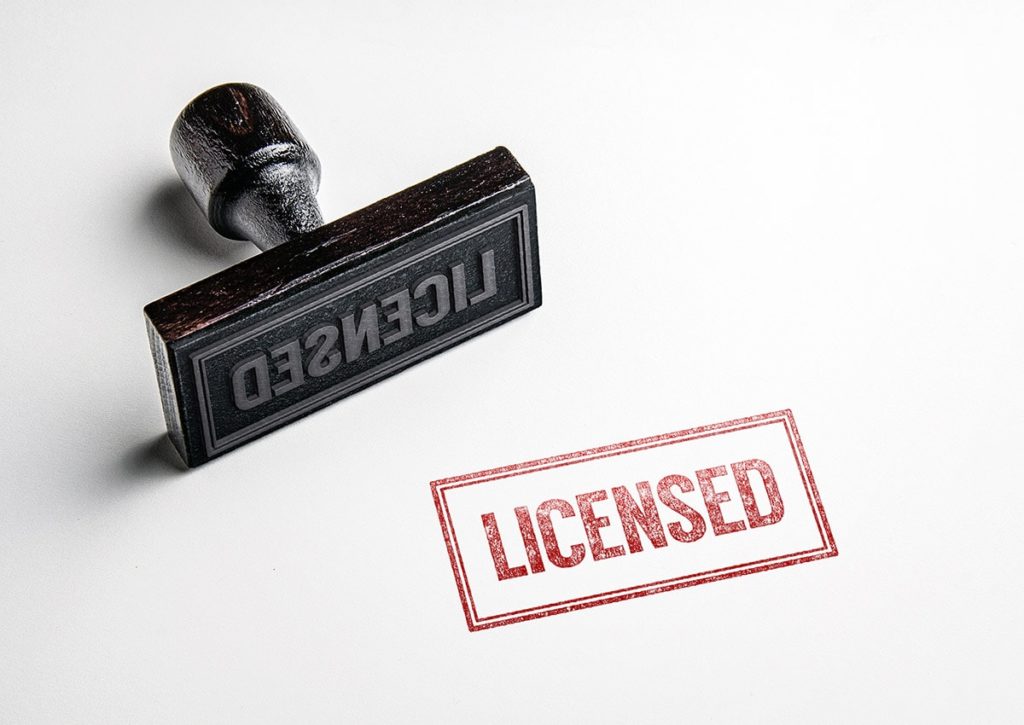How to Get a Handyman License: 7 Crucial Steps to Avoid Big Fines
-

- Last updated:


Though it may be tempting to embark on your handyman career without wasting your time on obtaining a license, you should think again. Getting a license is tricky and oftentimes discouraging, but you can find yourself in a world of trouble without it.
Most of the requirements for handyman licensure will depend on where you live. For that reason, there is not one standard approach to obtaining a handyman license. Nevertheless, here are some crucial steps to take in order to get a license, no matter where you live.
Why Do I Need a License?
A general handyman can offer a variety of services to one’s home, ranging from the roof to the basement. Since these jobs entail skill and expertise, most people only want to work with a licensed handyman. Getting a license will benefit your business since you will seem more trustworthy and experienced.
On top of that reason, most states require some sort of licensure. Without a license, you could find yourself in legal trouble and receiving some high tickets. Only by getting the proper licensure can you make sure that everything is good on the legal side of business.
From both the customer facing side to the legal side of your business, a license is the only way to put your best foot forwards and stay on the right side of the law. Even if you think you have all the necessary skills and experience of a professional handyman, don’t underestimate the importance of licensure.
Basic Skills Needed
Certain contractors will need specific skills and knowledge pertaining to their industry. For example, contractors who specialize in plumbing work will need different skills than contractors who specialize in electrical work. If you offer specialized services, make sure your skills relate to the specialty.
Handymen, however, often are able to perform a variety of jobs, making them more versatile. Though the skills you need may depend largely on the services you want to offer, here are some common skills that most handymen need for the job:
- Cleaning
- Door installation, repair, and restoration
- Floor repair
- Framing
- Furniture fixing and building
- Gutter cleaning
- Home security
- Minor electrical work
- Minor plumbing work
- Painting
- Shelving
If you do not think you have the basic skills to be a handyman just yet, that’s OK. There are tons of ways that you can earn experience without a license. One of the easiest ways to improve your skills is to take a class. Simply by signing up at a local community college you can get educational and hands-on experience and handyman work.
You can also volunteer your services to friends, family, or nonprofit organizations. Just be explicit that you are not licensed or experienced yet. Then, apply what you learn at school or through your volunteer work at home.
How to Get a Handyman License
1. Check Out Your Local Regulations
The first step is to check out your local regulations and requirements. Every state has different requirements for their handymen licensure. It is best to look on government websites to find out exactly what type of a license you need.
Most states will require you to get a contractor’s license, though that will not go for everyone. This type of license is normally required for industries that need general contractors, electricians, plumbers, remodelers, and handymen.
It is important to look at project amount requirements. Some states will only require you to get a license if you work on projects over a certain amount. For example, one state may require you to get a license if you are doing work worth over $500, while others will require a license for work worth over $1000.

2. See if You Need More Than One License
Depending on your specialty, you may need more than one type of license. As a handyman, you probably see yourself as a Jack of all trades. Some states will require additional licensure for certain industries such as HVAC or electricity, though.
Sometimes, the monetary amount of the project you work on may require additional licensure too. To find out if you need more than one license, check out your local regulations again since they will determine your requirements.
3. Talk to Investigators and Attorneys
Once you learn about all of the requirements to become a licensed handyman, it is always best to talk to an investigator and attorney too. The law can be confusing, giving you room to accidentally break rules without ever realizing it.
Investigators are going to be the people that hand out tickets. Talking to investigators may help you clear up some confusion and gain tips on how to avoid getting a ticket. Similarly, attorneys will help you know what you can and cannot do according to the law and how to determine if your rights are being violated.

4. Get Proper Training and Education
Your state will be explicit about the requirements to become licensed. It is up to you to get the proper training and education in order to fulfill those requirements.
If you have worked in the handyman business before, your experience will likely count towards your requirements. For those who are new to the industry, you can either sign up for classes at a Community College or get training through a handyman association.
You may also need to take an actual exam for licensure. Your training and education should prepare you for this exam. Also, talk to other people who have already taken the exam for tips and study advice so you can ace the test.
5. Apply for a License
After you have fulfilled all of your state’s requirements, it is time to apply for your license. If you’ve already gotten to this point, then you have already finished most of the hard work. Depending on where you live, you may also need to prove that you have business insurance. Find out if you need the insurance beforehand so that way you are prepared during the application process.

6. Register Your Business
Now that you have your license and passed all requirements, you need to register your business. You will need to decide between registering your business as a sole proprietorship or a limited liability company. Once again, it may be best to consult an attorney to find out which option is best for you.
7. Be Careful How You Advertise
Once you have passed all your requirements, got a license, and registered your business, you are not in the clear just yet. Many people get tickets despite all of their effort for issues with their advertising. To many people’s shock, there are regulations on advertising too. Where you live will largely determine regulations regarding advertisement.
For example, some states require you to specify that you are not a contractor in your advertisements. If you don’t specify this fact explicitly, you can get a ticket. Some states will ticket you simply for advertising the services you offer. Yes, it is that confusing and technical, but it is true, nonetheless.
Do not ignore regulations regarding how you can advertise your services because they can get you in a heap of trouble.
Do I Need Anything Else?
If you have successfully accomplished all of your state’s requirements, then you don’t necessarily need anything else. With that being said, most handymen would recommend you getting insurance. Insurance ensures that you and everyone else involved is protected in the case of a disaster.
Some clients may not even work with you if you do not have business insurance. To keep yourself out of trouble and to get as many clients as possible, make sure you get business insurance. Some states will not even allow you to get a business license if you don’t have business insurance first.
There are different types of business insurance, such as general liability insurance and workers compensation insurance. As a licensed handyman starting out, you will likely need general liability insurance. If you start hiring employees, then you will likely need workers compensation insurance too, though it is not necessary if you work alone.
When in Doubt, Talk to Someone with Experience
If you are still unclear about what you need to do and what is required of you, then talk to a handyman who is already done what you are going through now. Most people will be more than happy to help you, especially if they have undergone the process before. Just reach out to professionals in your area for some help. Even if you think you have everything figured out, getting some extra advice can never hurt.
- You may also like: Gutter Apron vs. Drip Edge: What’s the Difference?
Final Verdict
Even though getting a handyman license can be a headache, it’ll be much easier than dealing with a hefty ticket down the line. To make sure you are all set for business, look into your local regulations. Your state should be explicit about all your requirements. Follow them to a T, and you will be set.
Featured Image Credit: Castleski, Shutterstock
Contents



